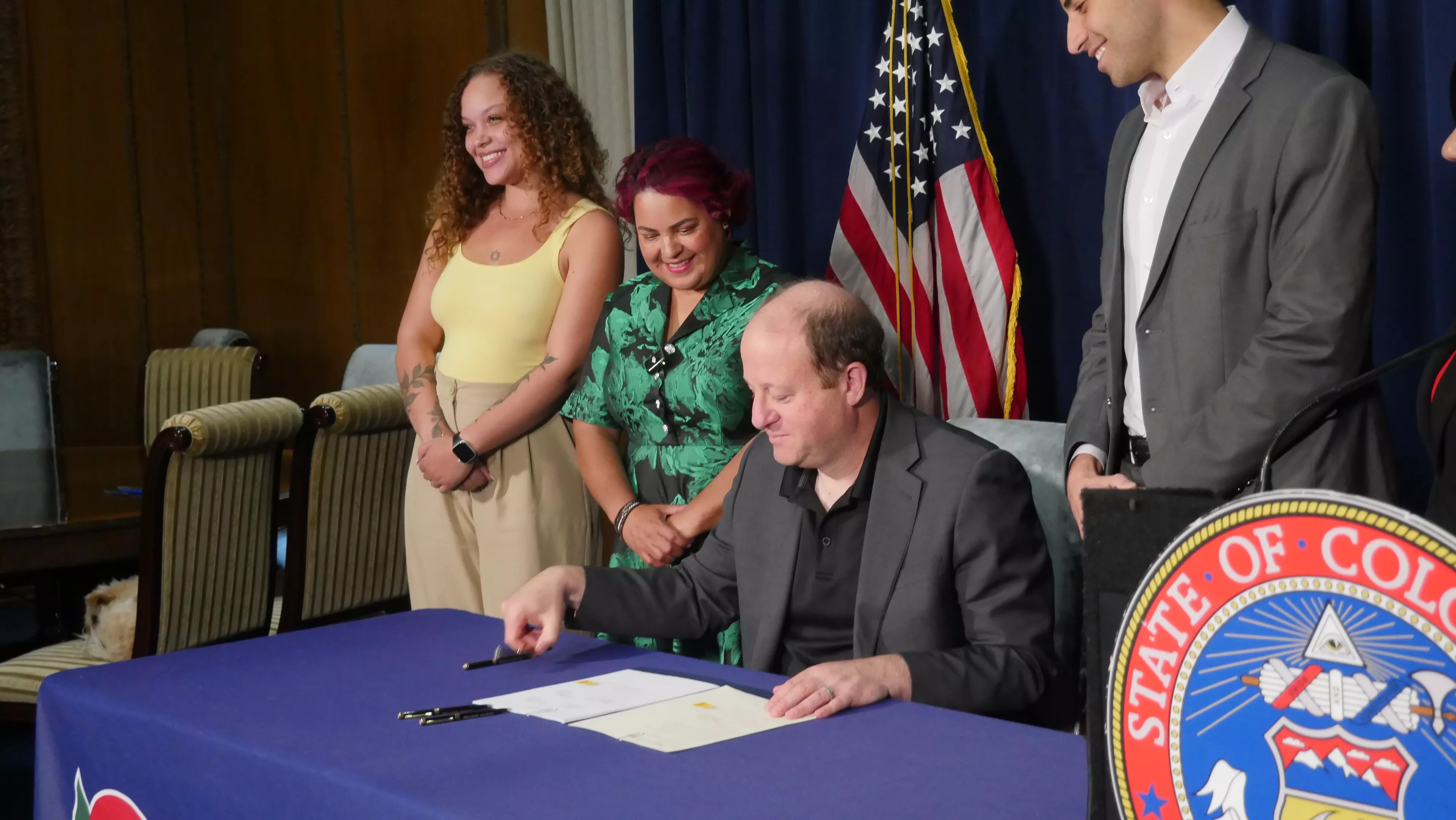
Gil Asakawa

Audio By Carbonatix
On May 20, Governor Jared Polis sat behind his desk in the Colorado State Capitol and signed into law Senate Bill 25-1295, titled “Food Truck Operations,” which will go into effect January 1, 2026.
The bill, designed to make it simpler for mobile vendors to supply events and locations in multiple municipalities, was promoted by the community of food-truck owners and operators during the last session of the State Legislature. Until now, truck owners in Denver had to get separate permits and licensing for every city or county in which they did business; the cost and administrative burden made it difficult for some would-be entrepreneurs to get rolling.
Robert Jenks, co-owner of Yuan Wonton with wife Penelope Wong, was happy to hear that the bill had been signed. Yuan Wonton moved into a Park Hill brick-and-mortar last fall but still has the food truck Jenks built that made Yuan Wonton an award-winning fixture in the area. “We’ve given our input on how freeing that step up would expedite getting more trucks onto the streets in Denver,” he says. “It was the biggest hurdle. I mean, building a food truck is challenging enough, but getting the permitting was even harder. So if they’re able to expedite that and keep it safe, that’s fantastic. That’s wonderful news.”
Jenks adds that he has nothing against rules and regs. “Permitting is important, and it’s a good tax revenue for the city, but the challenge to get permitted was prohibitive,” he notes. “Food trucks are supposed to be an easier way to get into the restaurant scene. So it’s great to see them streamlining all of that. Good for the governor for doing that.”
In the lobby outside the governor’s office, a small group of people were on hand to witness the signing, led by Maria Gonzalez, founder and CEO of Adelante, a Spanish-speaking community-based program that helps launch food trucks. “We have a food truck program that gives culinary arts education, and we teach people how to run and operate a food truck, and then put them through a boot camp,” she says, adding that over seven years, Adelante has helped 200 food trucks navigate the maze of regulations required to do business.
When Gonzalez’s group was ushered into a different room for the signing ceremony, they were joined by a small group of reporters, mostly Spanish-speaking media from Univision and Telemundo. The majority of food trucks in the state are operated by Latinos serving the Latino community.
Polis kept the ceremony short and to the point.
“So thank you for joining us,” he began. “We’re very focused on making Colorado the best place to start and grow business. Of course, we all love eating from our delicious food trucks at events throughout Colorado. This bill streamlines the process for food trucks to get licensed so that they can operate in many different jurisdictions across Colorado with less paperwork.”
After thanking the bill’s sponsors, he continued: “This bill makes it faster, easier and cheaper for food trucks to get licensed by ensuring we have reciprocity between jurisdictions so food trucks can go back and forth and meet the people where they’re at, to help feed them and provide a delicious and fun experience at many different events across our state. They have talented chefs and food trucks. We often have food trucks here at the Capitol. I see them throughout the state.”
And he noted that he’d see them at the annual food truck competition at the Colorado State Fair in Pueblo on Tuesday, August 26. “I hope that people are able to join us for delicious food and a fun location for that,” Polis said. “I’m excited by reducing barriers to allowing food trucks to serve people in multiple communities across our state.”
State Representative Manny Rutinel, one of the bill’s sponsors, said that when the bill’s advocates approached him, helping them was an easy decision. “It’s a pretty simple idea,” he noted. “They wanted food truck owners to focus more on making delicious food and less on paperwork. This is a bill to help reduce that redundant paperwork that they have to do across jurisdictions. And it’s especially important, not just for our small business owners, first-time business owners, but for our immigrant communities, who are often starting up this business and trying to live out their American dream on four wheels.”